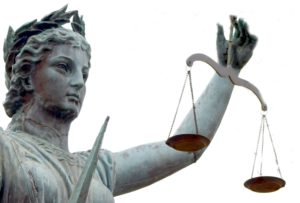Car Theft in Fairfax
October 3, 2017 by Jean Humbrecht
Car theft in Fairfax is taking a car from another person with the intent to permanently deprive the owner of his property. A Fairfax car theft charge is a form of Grand Larceny and is punished the same way.
Proof of Car Theft in Fairfax
Since car theft in Fairfax is a form of Grand Larceny, the Commonwealth must prove all of the elements of Grand Larceny to convict an offender of a Fairfax car theft charge under Va. Code §18.2-95. Grand Larceny is taking property valued at more than $200 with the intent to permanently deprive an owner of his property or taking property from a person valued at $5 or more without consent. Therefore, to prove a car theft in Fairfax, the Commonwealth must prove:
- a taking
- of a motor vehicle
- from another person
- without consent
- with the intent to permanently deprive the owner of his property
Penalty for Car Theft in Fairfax


Car Theft in Fairfax is a Form of Grand Larceny
Since car theft in Fairfax is a form of Grand Larceny, it is punished the same way. Car theft in Fairfax under Va. Code §18.2-95 is punished with up to 20 years in prison and a fine up to $2,500.
Is Car Theft the Same as Carjacking?
Car theft and Carjacking in Fairfax both involve stolen vehicles, but have important differences. Carjacking (Va. Code §18.2-58.1) is stealing a car by force, does not require intent to permanently deprive the owner of his property, and is punished with 15 years up to life in prison.
For more information on Carjacking in Fairfax, click here.
For more information on the difference between car theft and Carjacking in Fairfax, click here.
***DISCLAIMER: THE MATERIAL AND INFORMATION CONTAINED IN THIS POST, ON ANY PAGES ON THIS WEBSITE, AND ON ANY PAGES LINKED FROM THESE PAGES, ARE FOR GENERAL INFORMATION ONLY AND NOT LEGAL ADVICE. YOU SHOULD CONSULT A LICENSED ATTORNEY IN YOUR JURISDICTION BEFORE RELYING ON ANY OF THE INFORMATION CONTAINED ON THESE PAGES. SENDING EMAIL TO OR VIEWING INFORMATION FROM THIS WEBSITE DOES NOT CREATE AN ATTORNEY-CLIENT RELATIONSHIP***





